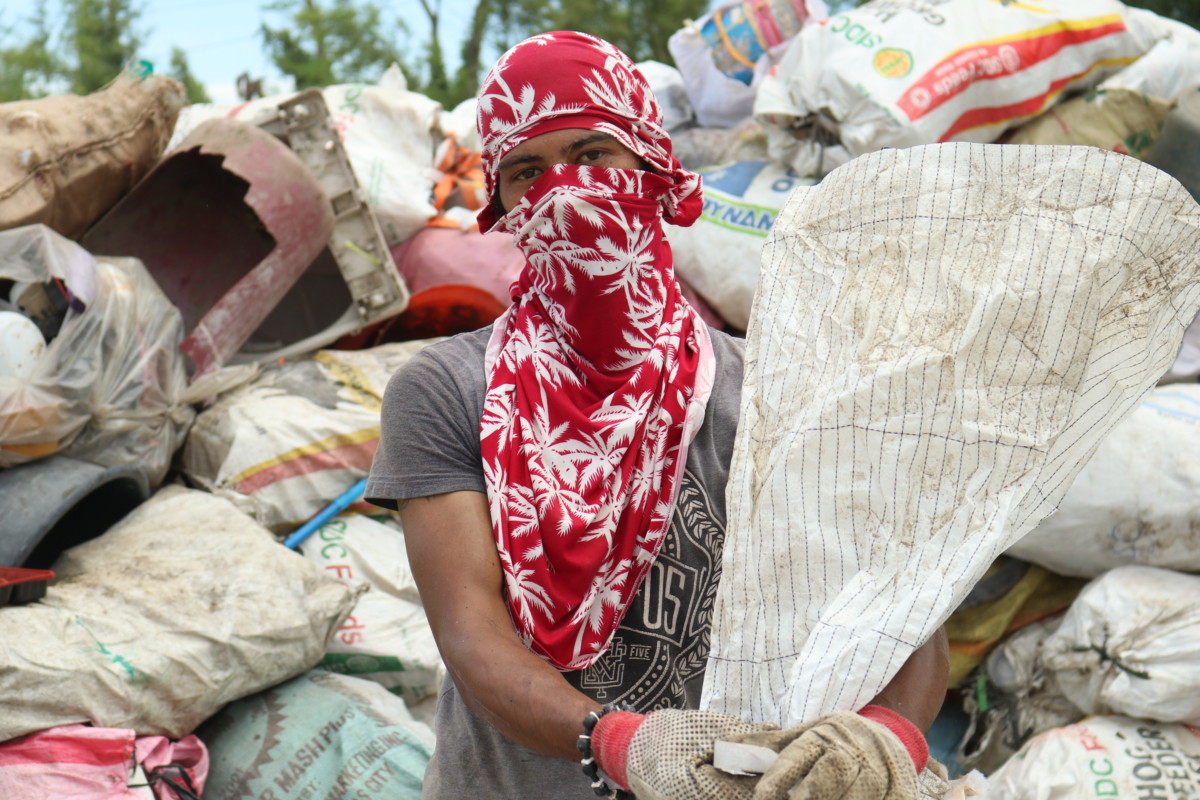Organizing Waste Workers: The Case of San Jose Sico Multi-purpose Cooperative
January 8, 2022 | Belle Tapia

Managing wastes has never been an easy task. In the case of some waste workers, this means working in sanitary landfills, sorting and picking piles of wastes under the blazing heat of the sun for hours, and with no proper protective equipment.
Waste workers belong to the informal waste economy. They often work under unsafe conditions, with no fixed wages, and heavily rely on collecting recyclable waste that they could sell to junk shops for additional income.
More often than not, they’re given less credit and recognition for the huge contributions they do in maintaining cleanliness in our communities and bridging the gaps in our waste value chain–from collection to disposal of our waste.
But the case of the waste workers from San Jose, Sico in Batangas City might just be a game-changer.
What started as a small association of 13 waste sorters eventually grew into an organized cooperative. In 2003, the San Jose Sico Landfill Multi-Purpose Cooperative was formally established with 55 members through the help of the City Environment and Natural Resources Office (CENRO) and the Office of the City Veterinarian and Agricultural Services (OCVAS) of the Local Government Unit in Batangas City.
Batangas City is home to over 351,000 residents (2020 Census of Population and Housing). Recent waste data (CENRO-Batangas, 2021) show that the city generates approximately 316 cubic meters of solid wastes per day with an average per capita daily waste generation of 0.35 kilograms. This is equivalent to almost 40 full mini-dump trucks of garbage going to the landfills every day.
In 1989, the Batangas City government decided to relocate the garbage dumpsite in Barangay Tinga Labac to Sitio Catmon in Barangay San Jose, Sico. Known as the Batangas City San Jose Sico Sanitary Landfill, it was approximately 0.64 hectares and accommodated about 52% of household wastes in Batangas City before its closure in 2019.
Leonora Cantos, who initially opposed the opening of the dumpsite in their community, has been a member of the cooperative for 20 years now.
“Nagbago talaga yung pagtingin ko nung malaman ko na may mga oportunidad pala sa pag-babasura [What really changed my perception was the livelihood opportunities that came to us] ,” Leonora says.
Through her years of work as a waste picker, she was able to build a house and provide education for her children. Leonora even loans rice from the cooperative at times of need.
Like any other member of the cooperative, Leonor received privileges like access to cash advances, loans, emergency funds, and dividends. Because of their efforts, programs, and best practices, the cooperative received numerous awards such as “Most Outstanding Cooperative” in the Small-Scale Category in Gawad Parangal National Level, last October 27, 2017, and received Special Citation Award for Exemplary Environmental and Conservation Program.
While the cooperative boasts of its extensive experience in servicing communities and has partnered with various establishments in the city, it faces a problem due to the lack of waste segregation from waste sources. This makes it even more difficult for waste sorters and pickers to recover marketable wastes.
“Alam naman ng mga tao yung maaaring idulot kung hindi maiaayos ang mga basura pero kulang sa pag-take ng responsibility ang karamihan,” says General Manager Sheryl Hernandez. She emphasizes the importance of raising awareness to the public on waste management and the value of the waste that they throw away or leave unmanaged.
Sherryl hopes that while waste technologies are being developed, so are solutions to divert wastes. In the meantime, the San Jose Sico Landfill Multi-purpose Cooperative partners with various institutions to innovate ways in turning garbage into livelihood opportunities.
Waste workers are our unsung modern-day heroes and we need better systems in place to support them. Through organizing, they can be recognized as essential partners in the process of solid waste management and be given the benefits and protection they deserve.
WWF-Philippines recognizes the importance of communities in approaching plastic pollution. Its project Clean Ports, Clean Oceans: Improving Port Waste Management in the Philippines, aims to engage all stakeholders, including communities, to reduce plastic waste leakage by 50% in the Port of Batangas.
Sources:
- https://psa.gov.ph/content/2020-census-population-and-housing-2020-cph-population-counts-declared-official-president
- CENRO Batangas (Jan-Jun 2021). Solid Waste Management - Self-Compliance Monitoring and Auditing Report.
For more information:
Czarina Constantino - Panopio
Project Manager
cconstantino@wwf.org.ph
Belle Dominique Tapia
Project Coordinator - Port of Batangas
btapia@wwf.org.ph
